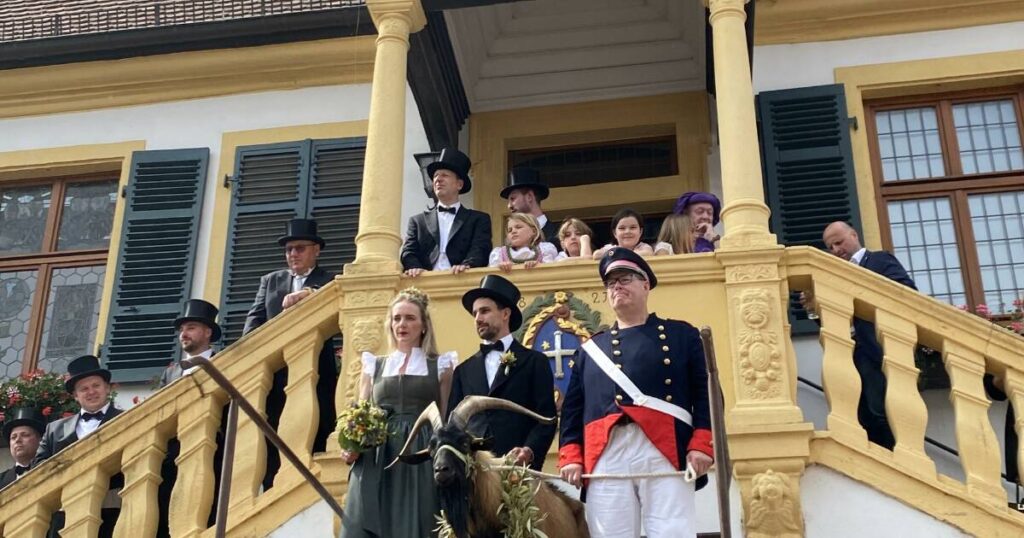
“You can drive your sports car through Deidesheim, but not everyone can walk a goat on a leash through the village!” exclaimed the auctioneer, igniting a wave of excitement among the gathered crowd. This scene unfolded at the annual goat auction, the centerpiece of May’s Goat Day in Deidesheim, Germany. The star of the show, a goat with impressive horns, stood calmly on a stage adorned with foliage, seemingly unaware of the historic significance of the event.
This 622-year-old tradition, a relic from medieval times when a neighboring village paid for grazing rights with a goat, has just been awarded UNESCO status. The recognition highlights the cultural and historical importance of the event, drawing attention to its unique place in the tapestry of local customs.
The Historical Roots of Goat Day
The origins of Deidesheim’s Goat Day date back to 1401, when a nearby village agreed to pay for the use of grazing land with an annual goat delivery. This arrangement not only cemented a peaceful relationship between the communities but also laid the groundwork for what would become a cherished tradition. Over the centuries, the event has evolved, incorporating festive elements such as auctions, parades, and local culinary delights.
According to local historian Dr. Hans Müller, “Goat Day is more than just a celebration; it’s a living testament to our ability to preserve and adapt historical customs. The UNESCO recognition is a validation of our efforts to keep this tradition alive.”
UNESCO Recognition: A Global Spotlight
The recent UNESCO designation places Goat Day among a select group of cultural practices recognized for their intangible heritage value. This status not only acknowledges the event’s historical significance but also ensures its preservation for future generations. The UNESCO recognition is expected to boost tourism, drawing visitors eager to experience this unique slice of history firsthand.
Dr. Müller notes, “The inclusion of Goat Day in UNESCO’s list of intangible cultural heritage is a proud moment for our community. It underscores the importance of preserving local traditions in an increasingly globalized world.”
Implications for the Local Community
The UNESCO status is anticipated to have several positive impacts on Deidesheim and its residents. Increased tourism could provide a significant boost to the local economy, benefiting businesses ranging from hotels to restaurants. Moreover, the recognition serves as an educational opportunity, allowing locals and visitors alike to delve deeper into the region’s history and cultural practices.
Local business owner Anna Schmidt expressed optimism, stating, “With more tourists expected, we hope to share our culture and hospitality with a wider audience. It’s a chance to show the world the charm of our village and the warmth of our people.”
Preserving Tradition in a Modern World
As Deidesheim prepares for an influx of visitors, the challenge lies in balancing tradition with modernity. The community is committed to maintaining the authenticity of Goat Day while accommodating the interests of a global audience. Efforts are underway to enhance infrastructure and facilities without compromising the event’s historical integrity.
Community leader Karl Becker emphasizes the importance of this balance, stating, “While we welcome the attention and economic benefits, our priority remains the preservation of Goat Day’s essence. It’s crucial that we stay true to our roots while embracing the opportunities that come with UNESCO recognition.”
Meanwhile, the goats, oblivious to the human excitement surrounding them, continue to play their part in this centuries-old tradition. As Deidesheim celebrates its newfound UNESCO status, the village stands as a testament to the enduring power of cultural heritage.
The next steps involve leveraging the UNESCO recognition to further promote Goat Day on an international stage, ensuring that this medieval tradition continues to thrive in the modern era.







